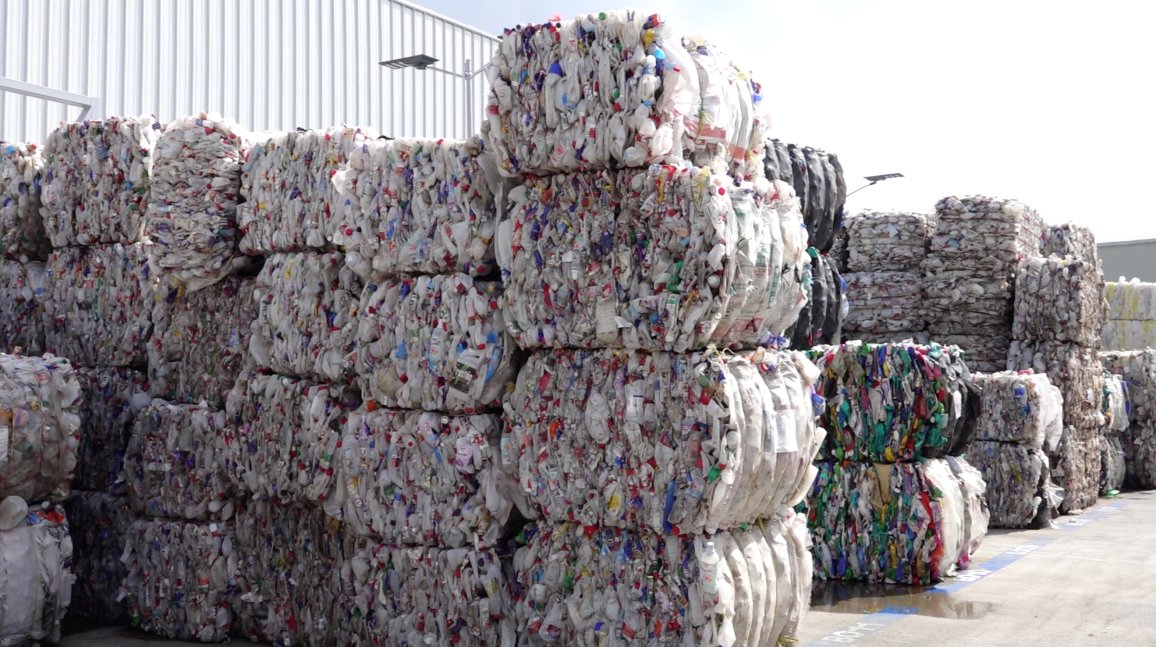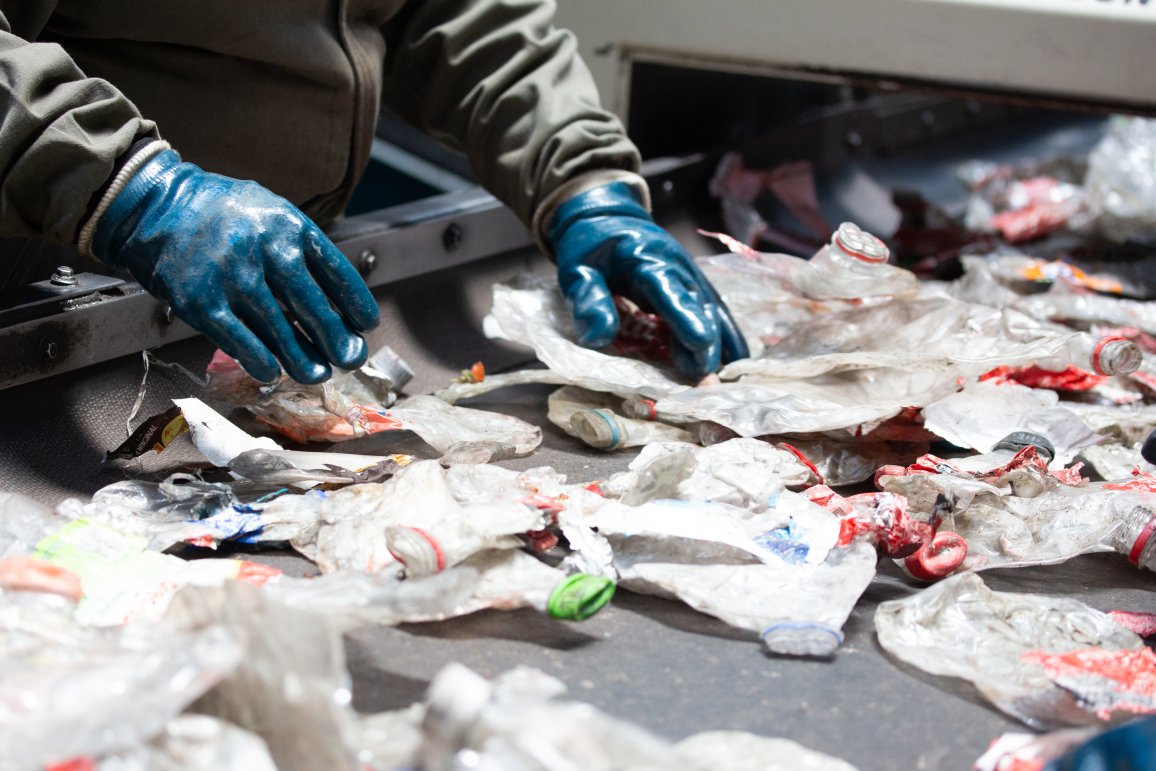Recycled plastic reduces carbon consumption by up to 87 per cent
Recycling works: plastic packaging specialist ALPLA operates state-of-the-art plants worldwide under the brand ALPLArecycling for the production of rPET (recycled PET) and rHDPE (recycled HDPE). Calculation of the product carbon footprint by the independent consultancy c7-consult now provides new data for a total of four plants in Mexico and Germany. Carbon reductions of up to 87 per cent compared to virgin materials confirm the climate protection effect of recycled plastics and the ecological importance of regional bottle-to-bottle loops.

ALPLA processes used plastic packaging into recyclate. The recycled material produced in Mexico and Germany causes up to 87 percent less CO2 emissions than virgin material.
ALPLA is focusing on the circular economy: the global packaging specialist invests more than 50 million euros annually in recycling and uses state-of-the-art technologies to produce recycled material. With an installed and projected output capacity of 350,000 tonnes per year, the company is one of the world’s leading plastics recyclers. Analyses performed by the life cycle assessment specialist c7-consult now confirm efficient production at a total of four additional sites in Mexico and Germany. There, ALPLArecycling produces rPET and rHDPE, which produces up to 87 per cent fewer carbon emissions than virgin materials.
‘The figures confirm our path. We produce climate-friendly recycling solutions with a regional focus and convert the material into new packaging, thereby promoting the bottle-to-bottle loop. In this way, we ensure there are safe, affordable and sustainable packaging solutions all over the world,’ emphasises Georg Lässer, Director of Business Development, Procurement and Sales, Recycling, at ALPLA.
Circular economy pioneers in Mexico
ALPLArecycling produces 30,000 tonnes of rHDPE per year at its Toluca recycling plant in Mexico. Production in Toluca causes 0.69 kg of CO2e per kilogram. This is 70 per cent fewer emissions than with HDPE virgin material (2.32 kg of CO2e per kilogram[1]). ALPLA has been operating what was the first PET recycling plant in Latin America at the time in Toluca since 2005 within the joint venture IMER (Industria Mexicana de Reciclaje S.A. de C.V.) together with Coca-Cola FEMSA and The Coca-Cola Company. It has an annual production capacity of 16,000 tonnes of rPET. According to the analysis, production causes only 0.38 kg of CO2e per kilogram, which is 87 per cent less than virgin PET (2.90 kg of CO2e per kilogram[2]).
The rPET production capacity in Mexico will be increased to 51,000 tonnes next year. The PLANETA plant (Planta Nueva Ecología de Tabasco) in Cunduacán is currently being built in cooperation with Coca-Cola FEMSA. The joint venture partners are setting new collection priorities with the model of paying for the receipt of used PET bottles and with social cooperations. ‘Recycling is a key element in packaging solutions of the future. We want to convince people of the benefits and are drawing on substantiated data to do so. Exact analysis of our plants also enables us to improve our ecological footprint in a targeted manner,’ explains Carlos Torres Ballesteros, ALPLA Managing Director, Mexico, Central America and the Caribbean.

ALPLArecycling operates 13 state-of-the-art recycling plants worldwide for the production of rPET and rHDPE, four of which are joint ventures.
Germany: household recyclables collection
With an annual production capacity of 43,000 tonnes of rPET, ALPLArecycling is one of the largest PET recycling companies in Germany. Materials sourced from household recyclables collection are processed at the site in Bitterfeld-Wolfen, Saxony-Anhalt. Unique sorting and processing plants were built worldwide for this purpose in 2019. Recycling PET bottles from household collection leads to a slightly higher energy requirement for washing. For example, Bitterfeld-Wolfen causes 0.93 kg of CO2e per kilogram of rPET. This means the recycled material produces 68 per cent fewer emissions than virgin material. At the PET recycling site in Bad Salzuflen, North Rhine-Westphalia, it is just 0.68 kg of CO2e per kilogram, which corresponds to a reduction of 77 per cent.
ALPLArecycling’s recycling plants in Austria and Poland, for which the PCF was likewise calculated in recent years, prove that there is still potential for optimisation. Through the additional use of renewable energy, rPET can produce a footprint of up to 0.21 kg of CO2e per kilogram, which corresponds to a reduction of up to 93 per cent. Switching to renewable energy is currently also being considered for plants in other countries.
[1] Source: ecoinvent v3.9.1, global average
[1] Source: ecoinvent v3.9.1, global average
Media
Press contact
ALPLA
Lukas Österle
Senior Sustainability Communications Manager
+43 5574 602 2132
